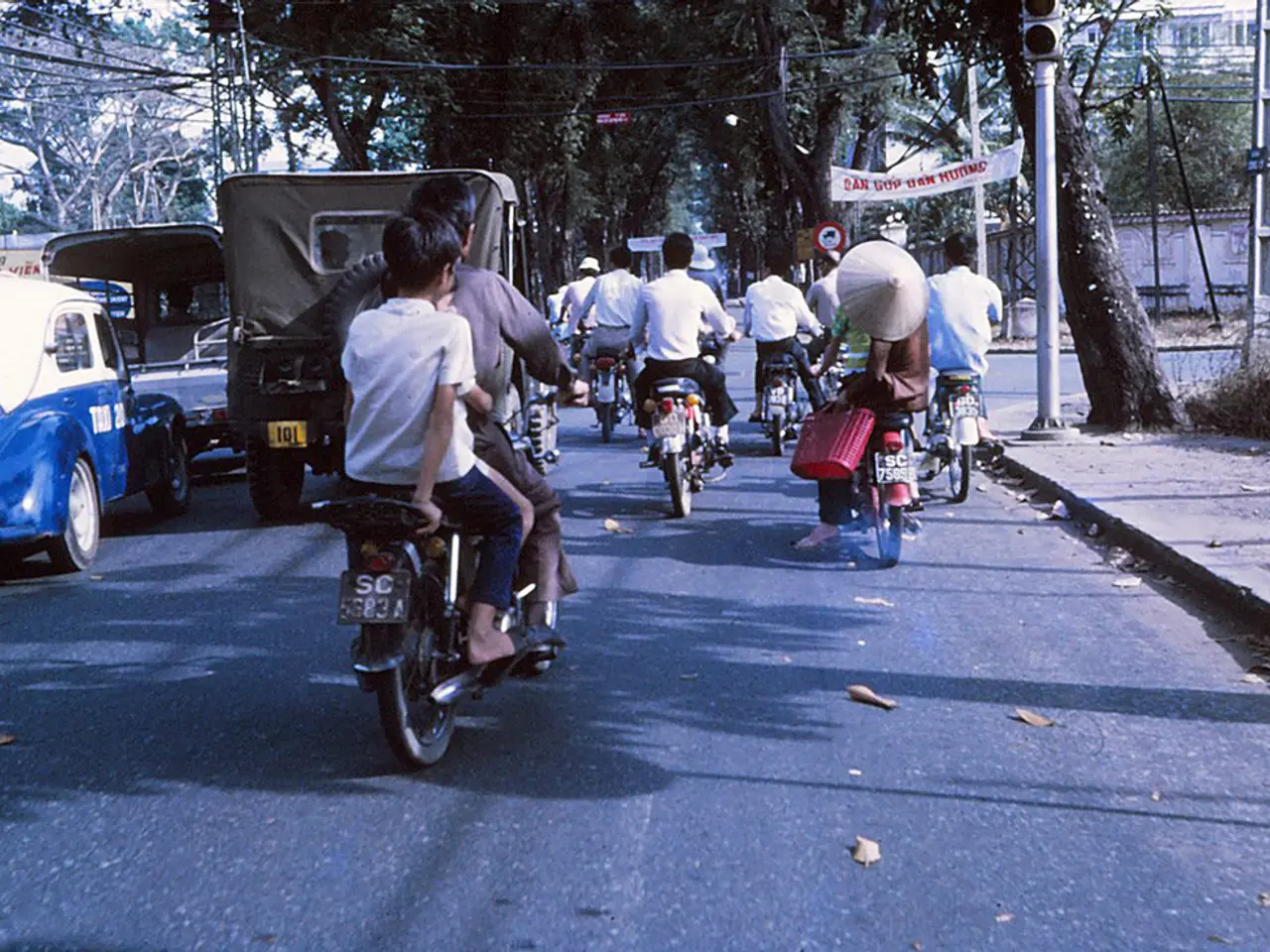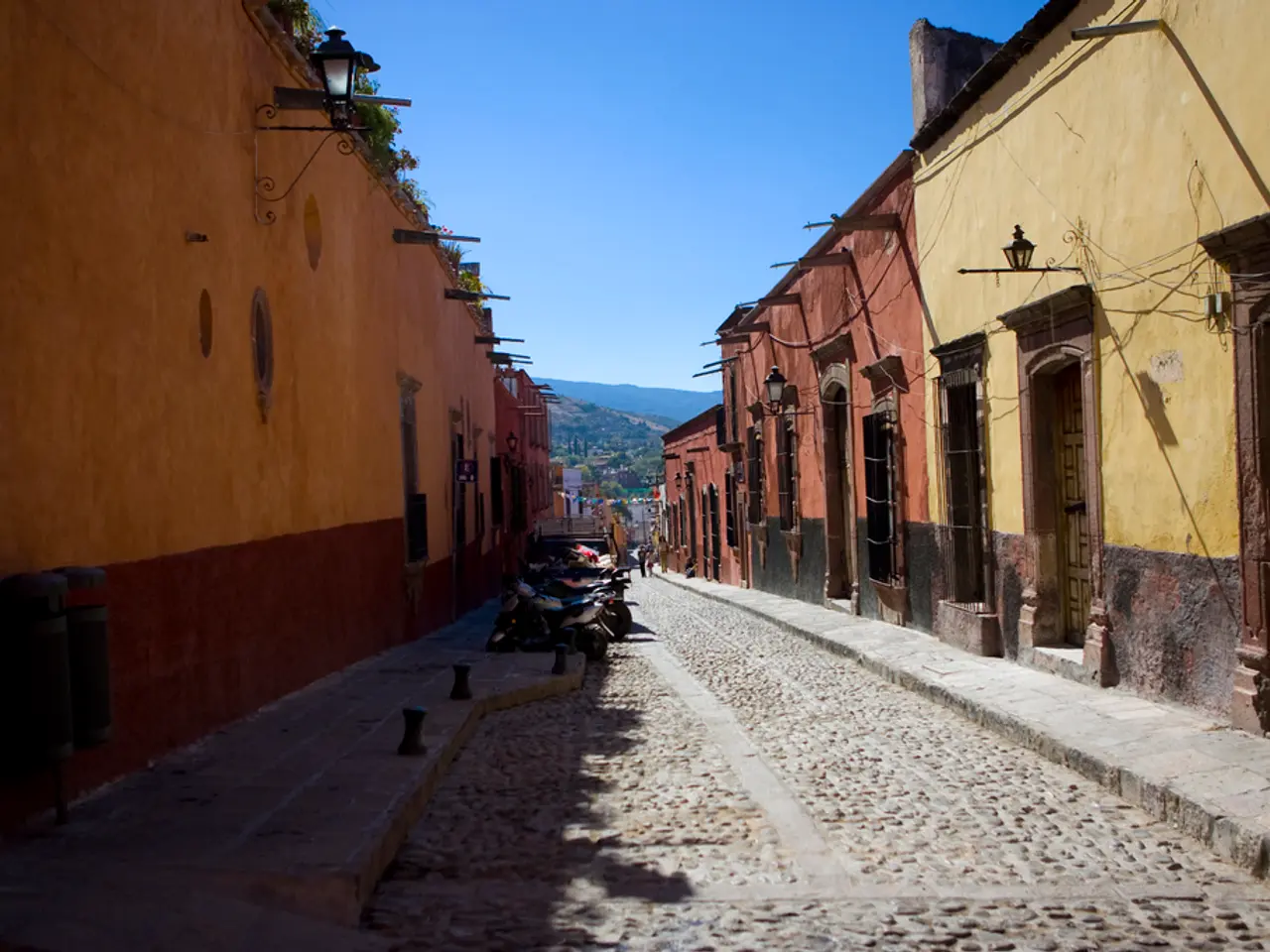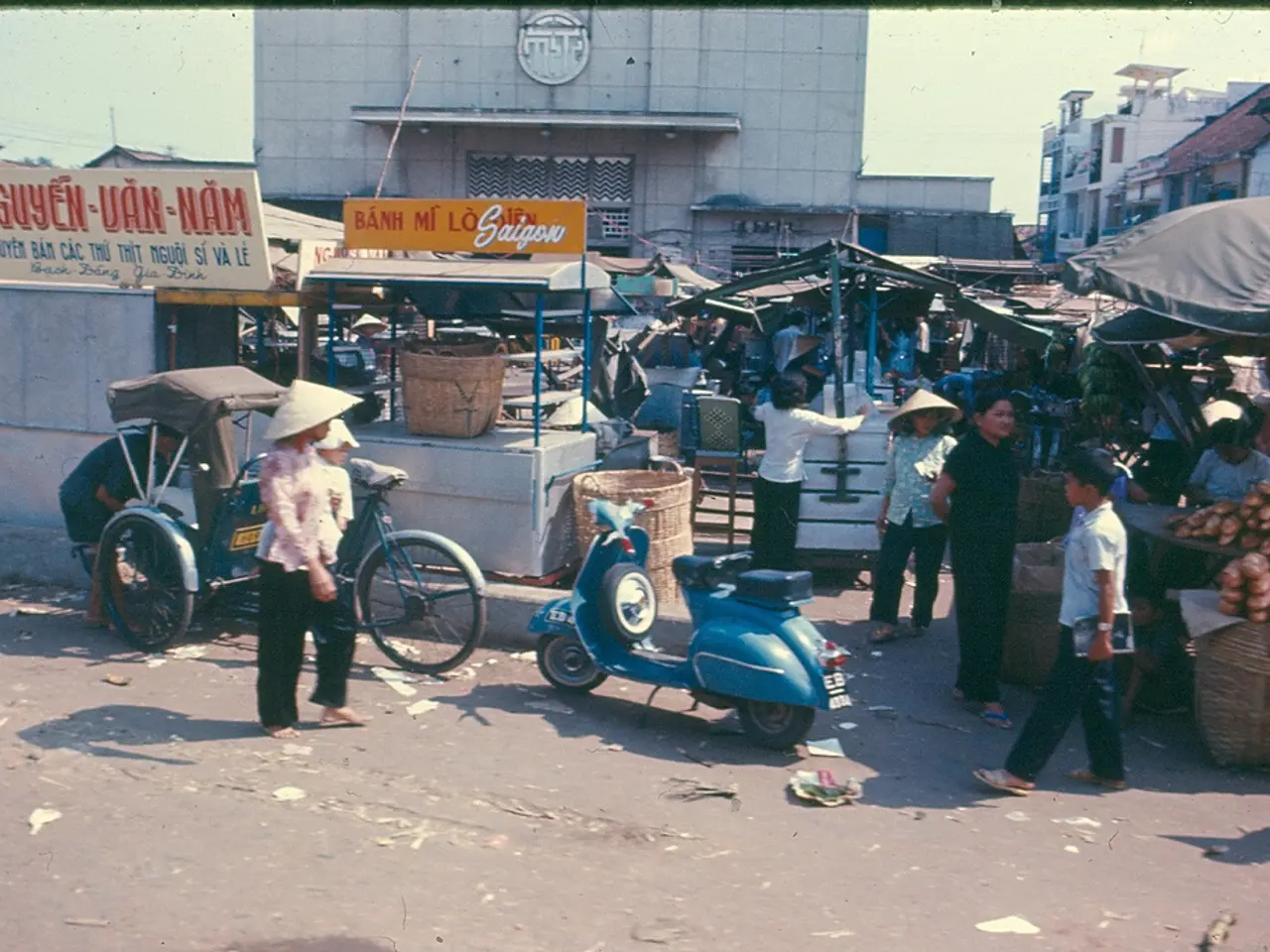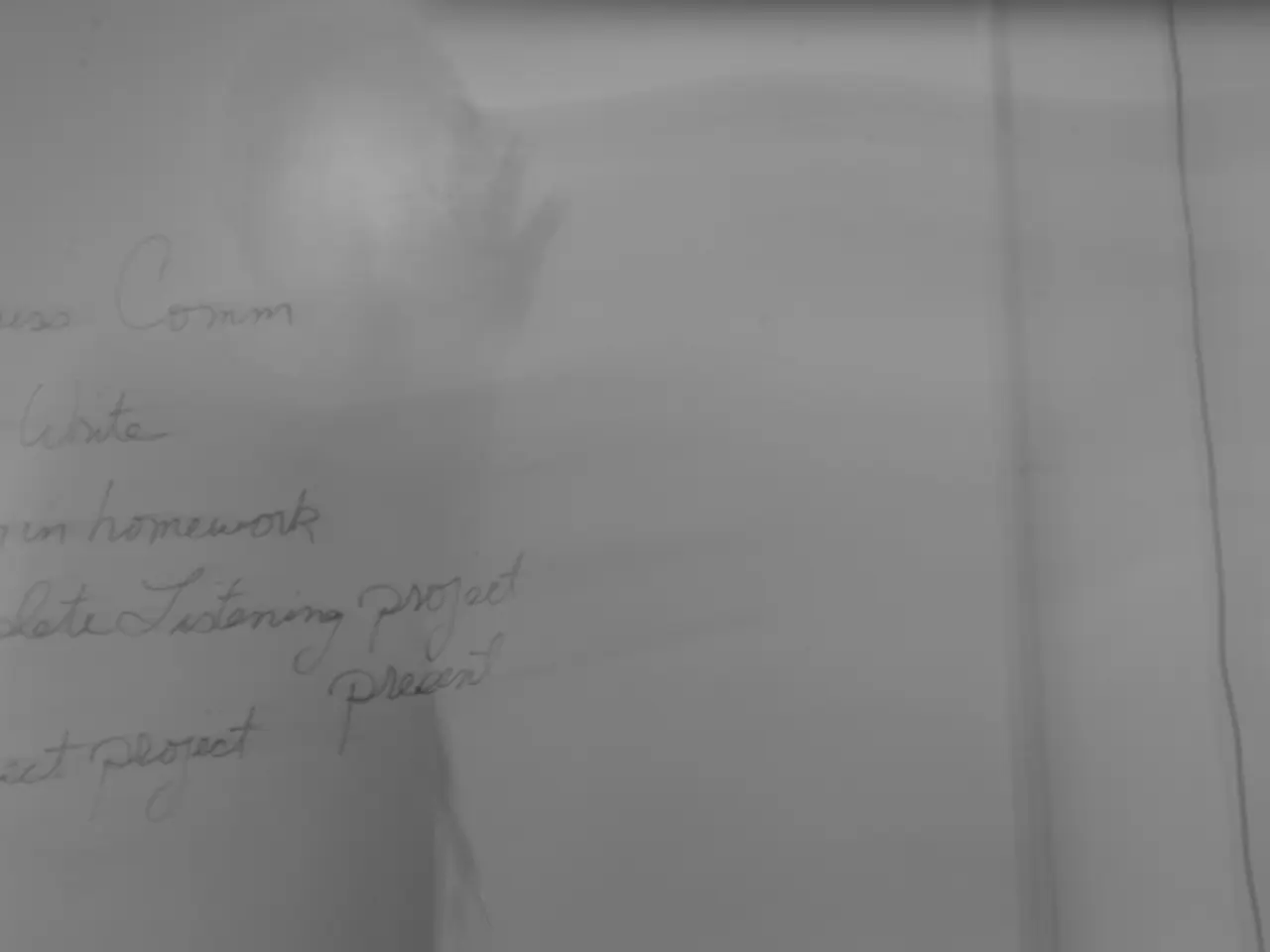- Escalating dispute: Thailand and Cambodia plan mutual truce starting from midnight
Border Conflict Between Thailand and Cambodia: Ceasefire Agreement Reached After Intense Clashes
After five consecutive days of border incursions by Thai forces, a ceasefire agreement has been reached between Thailand and Cambodia. The agreement, announced on social media by US President Donald Trump, marks a temporary halt to a deeply entrenched dispute that has its roots in colonial-era boundary definitions and territorial claims over Khmer Empire-era temple sites.
The conflict, which has periodically escalated since the early 2000s, reached a critical point in July 2025 with intense clashes involving artillery, air power, and even F-16 fighter jets. More than 30 people have been reported killed in the fighting since Thursday, according to official figures.
The ceasefire agreement was reached during talks in Putrajaya, Malaysia, co-organized by the USA with China also involved. The meeting was described as a "significant first step in de-escalation and restoration of peace and security" by Malaysia's Prime Minister Anwar. Cambodia's Prime Minister Hun Manet expressed his appreciation for the mediation efforts, stating that the agreement creates the conditions for the bilateral talks to return to normal relations.
The ceasefire comes as a relief to the hundreds of thousands of people who have fled their villages due to the clashes. More than 200,000 people have been displaced, with 138,000 on the Thai side and 80,000 on the Cambodian side of the border.
Despite the ceasefire, the root causes involving sovereignty and nationalism remain unresolved. The solutions announced by Prime Minister Anwar of Malaysia may provide a path forward, but the long-term durability of peace without political solutions remains uncertain.
The joint border commission of the neighboring countries will meet in Cambodia next Monday to discuss the details of the ceasefire agreement and the path towards a lasting peace. A meeting of the military chiefs of Thailand and Cambodia is scheduled for Tuesday morning.
The ceasefire was also welcomed by international leaders. The EU's High Representative for Foreign Affairs, Kaja Kallas, described the agreement as a "significant breakthrough." Germany's Chancellor Friedrich Merz expressed his appreciation for the mediation efforts of Prime Minister Ibrahim in the conflict between Thailand and Cambodia.
US President Donald Trump wrote on Truth Social that both sides wanted to "quickly agree on a ceasefire, and ultimately, peace." Phumtham Wechayachai, Thailand's interim Prime Minister, stated that the ceasefire must be implemented in good faith by both sides and that Thailand had chosen a peaceful solution while simultaneously protecting its sovereignty and the lives of its people.
The ceasefire agreement represents a pause in fighting after some of the heaviest exchanges in years. However, the road to lasting peace remains long and uncertain, with the underlying territorial and nationalist sentiments yet to be fully addressed.
Background
The border conflict between Thailand and Cambodia has deep historical roots dating back to colonial-era treaties in the early 1900s, particularly the Franco-Siamese treaties that established boundaries still contested today. The dispute specifically centers on several areas including temple ruins from the Khmer Empire era, such as Prasat Ta Muen Thom and Preah Vihear temple, which both countries claim sovereignty over.
The conflict has periodically escalated since the early 2000s, with significant clashes between 2008 and 2011 over Preah Vihear temple, resulting in military fatalities on both sides. Cambodia brought the issue to the International Court of Justice (ICJ), which in 2013 ruled the disputed area belonged to Cambodia. However, Thailand rejected the ICJ’s jurisdiction and preferred bilateral talks through a Joint Boundary Commission as established by a 2000 memorandum of understanding.
[1] BBC News [2] Reuters [3] CNN [4] Al Jazeera [5] The Diplomat
The Europen Union, following the ceasefire agreement between Thailand and Cambodia, has expressed support for the mediation efforts and called on both countries to take a more active role in the politics and general news of finding a lasting solution to their border conflict, particularly in addressing the war-and-conflicts and territorial disputes that have their roots in colonial-era treaties.
Germany's Chancellor Friedrich Merz, in acknowledging the ceasefire, has emphasized the vital role of politics in resolving the ongoing border conflict between Thailand and Cambodia and ensuring long-term peace rather than just a temporary truce.





